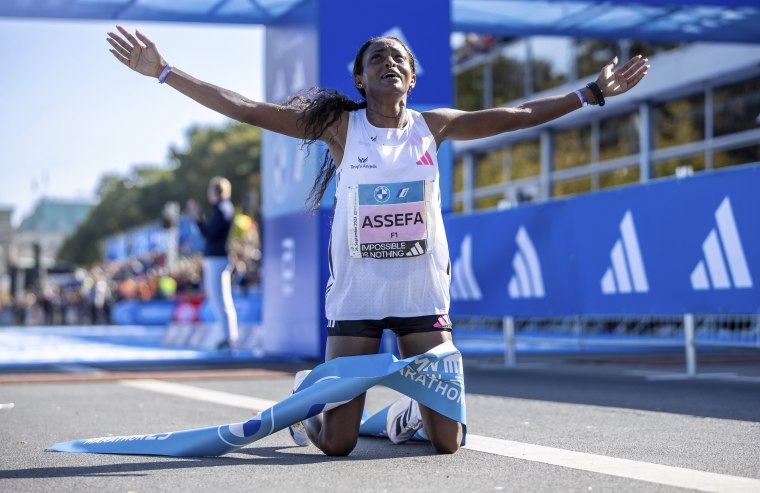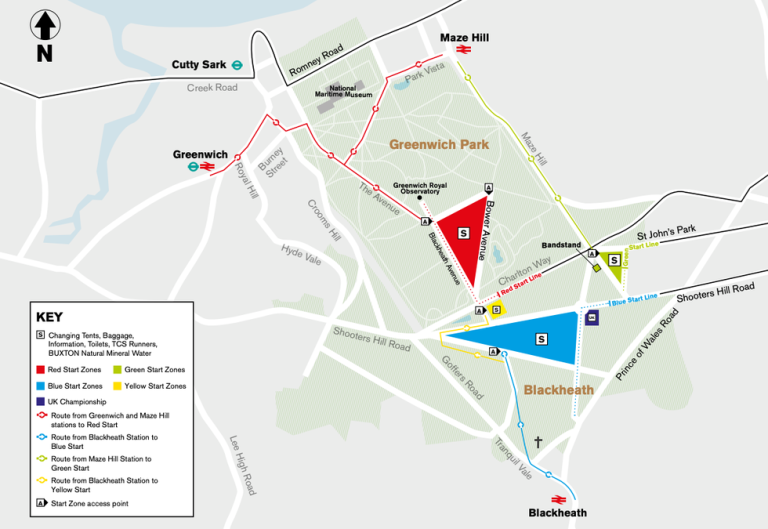Marathon World Record
The current Marathon World Record for men is 2:01:39, set by Eliud Kipchoge in 2018. In the world of long-distance running, the Marathon World Record is the ultimate goal that elite athletes strive to achieve.
Breaking this record requires a combination of exceptional physical endurance, mental toughness, and meticulous training. The current record holder, Eliud Kipchoge, made history when he completed the marathon in an astonishing time of 2 hours, 1 minute, and 39 seconds.
This remarkable feat not only showcases his extraordinary athleticism but also serves as inspiration for aspiring runners around the globe. We will delve deeper into the history of the Marathon World Record, the athletes who have pushed the limits of human performance, and the ongoing quest to break new records in the world of distance running.
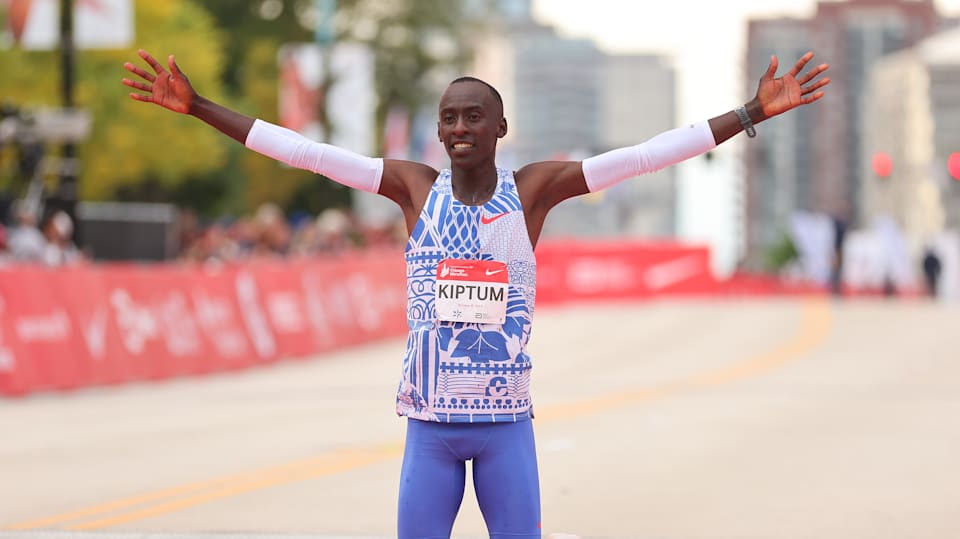
Credit: olympics.com
The Evolution Of The Marathon World Record
The marathon world record has undergone significant evolution in recent years, with athletes continually pushing the boundaries of human performance. From the first record set in 1908 to the current record, the pursuit of faster times continues to captivate and inspire runners around the globe.
Early World Records
The early years of marathon running saw remarkable achievements with pioneering athletes setting remarkable records. Athletes like Johnny Hayes and Jim Peters made significant strides in pushing the boundaries of the marathon world records.
Breakthrough Performances
Breaking barriers, athletes like Abebe Bikila and Derek Clayton redefined the limits of human endurance. Bikila became the first athlete from sub-Saharan Africa to take home Olympic gold, while Clayton showcased outstanding resilience in setting a new benchmark.
Current Record Holders
Today, elite athletes such as Eliud Kipchoge and Brigid Kosgei are dominating the marathon world records. Kipchoge’s historic sub-2-hour marathon has ushered in a new era of performance, while Kosgei’s groundbreaking female record has brought further glory to the sport.
Factors Contributing To Record-breaking Performances
The pursuit of breaking marathon world records has captivated athletes and enthusiasts alike. Several critical factors play a pivotal role in achieving these remarkable feats.
Advancements In Training Methods
Athletes now benefit from innovative training techniques that optimize performance.
- Use of data analytics for personalized training plans
- Incorporation of cross-training to prevent injuries
Technological Innovations
Technological advancements have revolutionized marathon training and racing.
- Introduction of carbon fiber shoes for enhanced speed
- GPS trackers for precise monitoring of performance
Elevation And Course Conditions
Elevation and course conditions significantly impact marathon records.
- Selection of flat courses for faster times
- Optimal weather conditions for peak performance
Notable Moments In Marathon World Record History
First Sub-2:10 Marathon
In 1969, Derek Clayton achieved a milestone by breaking the 2:10 barrier.
Breaking The 2-hour Barrier
Eliud Kipchoge made history in 2019 by completing the marathon in under 2 hours.
Close Calls And Near Misses
Rita Jeptoo came close to breaking the record in 2014, finishing just moments shy.
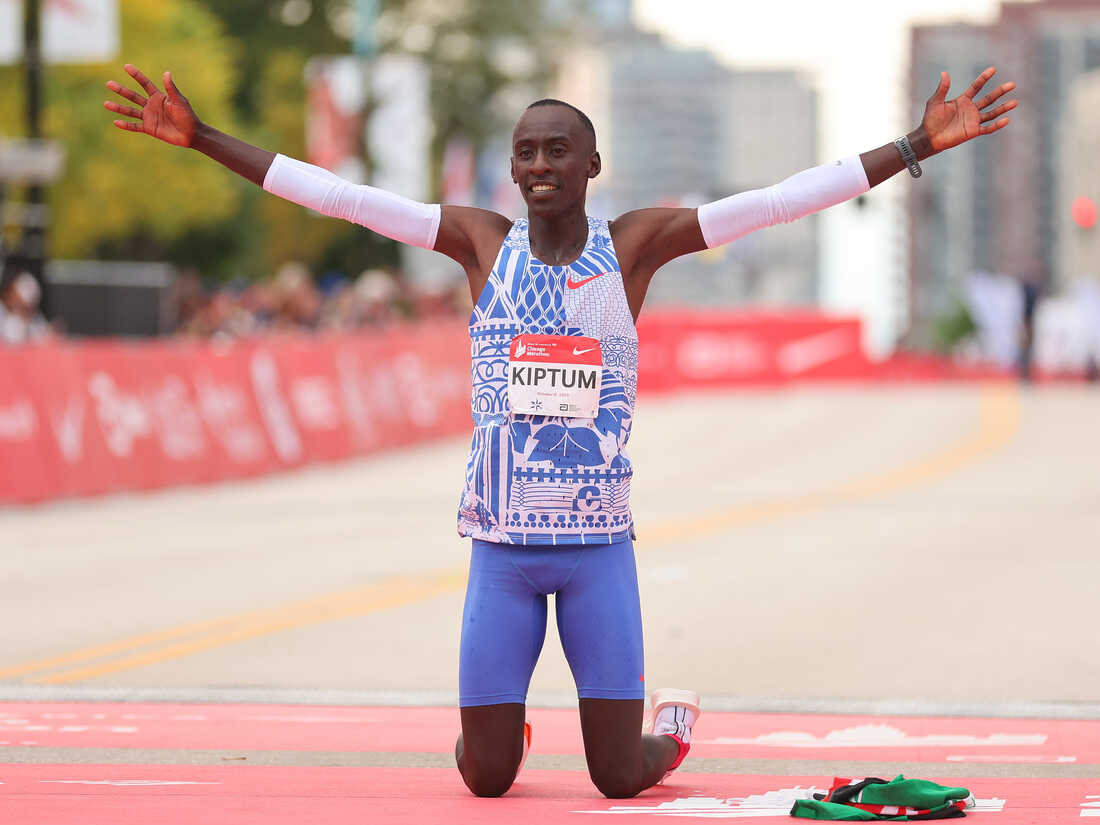
Credit: anchor.hope.edu
The Role Of Athlete Genetics And Physiology
Genetic Factors In Endurance Performance
Genetic factors play a significant role in an athlete’s performance in endurance events, including marathon running. Certain genetic variations can affect an individual’s predisposition to endurance activities. For instance, studies have shown that variations in genes related to muscle structure, oxygen delivery, and energy metabolism can influence an athlete’s capacity for endurance. Variants in the ACTN3 gene, for example, have been linked to muscle fiber composition and are associated with elite marathon runners.
Muscle Fiber Composition
The distribution of muscle fiber types in an athlete’s body can significantly impact their ability to excel in marathon running. Endurance athletes tend to have a higher concentration of slow-twitch muscle fibers, which are more efficient at utilizing oxygen and sustaining prolonged activity. On the other hand, fast-twitch muscle fibers are more suited for explosive movements but are less efficient at aerobic activities such as long-distance running. Genetic predispositions play a crucial role in determining an individual’s muscle fiber composition, influencing their endurance capacity.
Vo2 Max And Oxygen Utilization
VO2 max, the maximum amount of oxygen an athlete can utilize during intense exercise, is a critical determinant of marathon performance. Genetic variations can impact an athlete’s VO2 max potential, affecting their ability to sustain high-intensity running for extended periods. Additionally, the efficiency of oxygen utilization within the muscles can be influenced by genetic factors, playing a pivotal role in an athlete’s endurance capacity. The interplay between genetics and physiological traits is essential in understanding an athlete’s potential for marathon success.
Future Prospects For Breaking The Marathon World Record
The marathon, a grueling 26.2-mile endurance race, has captivated the world for decades. As athletes continue to push their limits, breaking the marathon world record is an ongoing pursuit that sparks excitement and anticipation. In this article, we explore the future prospects for breaking the marathon world record, including the possibility of a sub-2-hour marathon, emerging talent and rising stars, and potential breakthrough technologies.
The Possibility Of A Sub-2-hour Marathon
Imagine a marathon completed in less than 2 hours – a herculean feat that could revolutionize the sport. Currently, Eliud Kipchoge holds the unofficial world record with his remarkable time of 2 hours, 1 minute, and 39 seconds. When it comes to breaking the sub-2-hour barrier, the question remains: is it achievable? Recent advancements in training methods, nutrition, and race strategies suggest that it may be within reach.
To surpass this monumental milestone, athletes must maintain an astonishing pace of under 4 minutes and 35 seconds per mile. This would require not only exceptional physical abilities but also mental resilience and unwavering determination. With continuous advancements in performance-enhancing technologies and rigorous training programs, the possibility of witnessing a sub-2-hour marathon in the future is not inconceivable.
Emerging Talent And Rising Stars
The marathon world record has seen several remarkable performances from both established legends and emerging talents. Athletes such as Eliud Kipchoge, Kenenisa Bekele, and Geoffrey Kamworor have continuously pushed the boundaries of what is considered possible in the marathon. Their achievements have inspired a new generation of runners to strive for greatness.
As training techniques evolve and athletes become more attuned to their bodies, we can expect to witness the rise of new stars capable of challenging the existing records. Young runners with exceptional endurance, speed, and dedication can now leverage advancements in sports science and coaching methods to maximize their potential.
Potential Breakthrough Technologies
Technological innovations have always played a significant role in shaping the performance of athletes. In the pursuit of breaking the marathon world record, emerging technologies continue to offer promising avenues for improvement. From advanced footwear designs that enhance running economy to wearable devices that provide real-time performance data, the possibilities are vast.
One such breakthrough technology that has garnered significant attention is the Nike Vaporfly running shoes. With their carbon-fiber plates and energy-returning foam, these shoes have contributed to faster marathon times and propelled athletes to new heights. Additionally, continuous advancements in nutrition science, recovery tools, and training methodologies offer further prospects for shaving off crucial seconds and minutes from the current world record.
Overall, the future prospects for breaking the marathon world record are compelling. The pursuit of a sub-2-hour marathon, the emergence of new talented runners, and the continued advancements in technology create an atmosphere of anticipation and excitement. As athletes relentlessly strive to push their limits, the world waits with bated breath for the next groundbreaking moment in marathon history.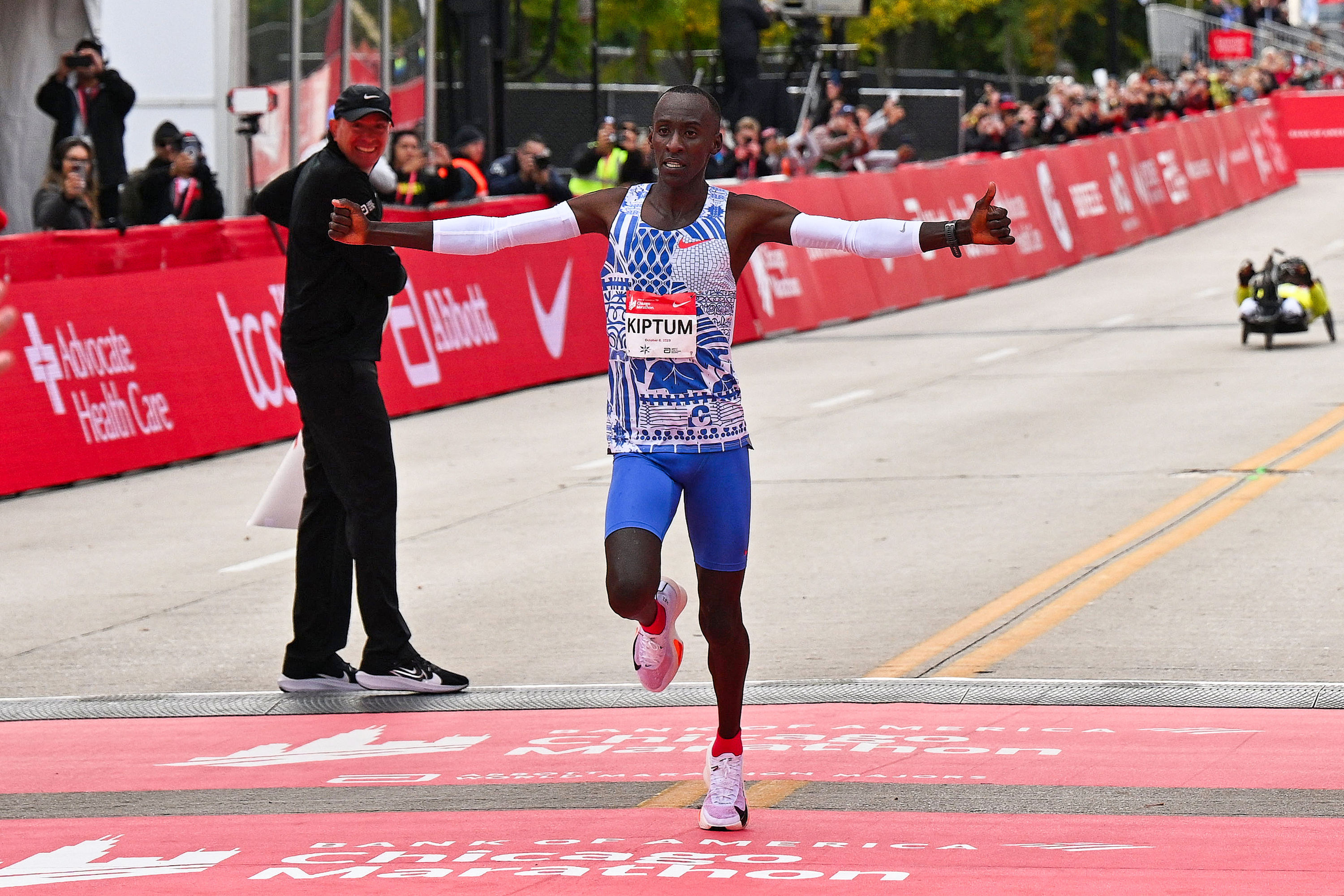
Credit: www.reuters.com
Frequently Asked Questions Of Marathon World Record
What Is The Current Men’s Marathon World Record?
The current men’s marathon world record is held by Eliud Kipchoge from Kenya, with a time of 2:01:39.
How Has The Men’s Marathon World Record Evolved Over The Years?
The men’s marathon world record has steadily improved over the years due to advancements in training methods, nutrition, and sports science.
Who Holds The Women’s Marathon World Record?
Brigid Kosgei from Kenya currently holds the women’s marathon world record, with a time of 2:14:04.
Conclusion
The marathon world record is a testament to human endurance and athleticism. The elite runners who achieve this feat push the boundaries of what is physiologically possible. Their dedication and determination inspire us to strive for greatness in our own lives.
The marathon world record stands as a symbol of human potential and the pursuit of excellence.

